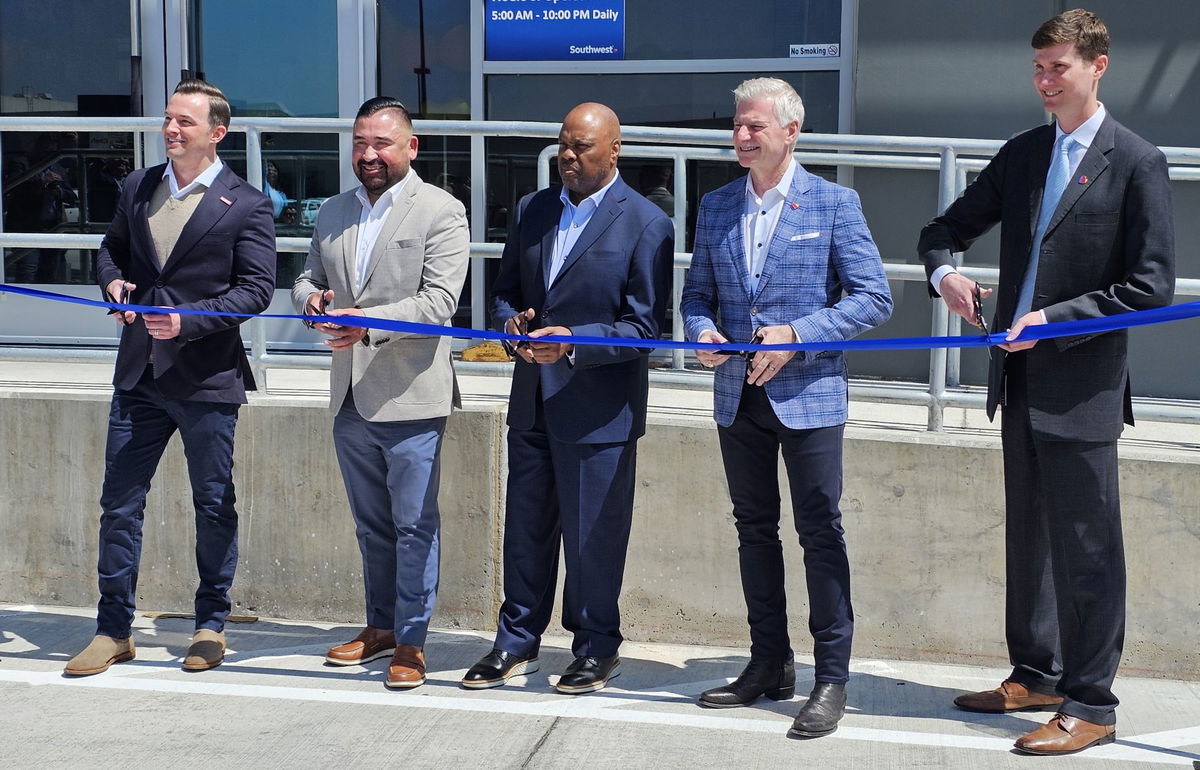DENVER – Southwest Airlines on Thursday unveiled a new cargo facility at Denver International Airport that more than doubles throughput capacity and triples the amount of cooler space for refrigerated products to support growing demand for airfreight service in the metropolitan area.
Southwest Airlines invested $28 million to build the 27,000-square-foot facility, which is now the largest in the company’s cargo network. Southwest Cargo previously shared a leased space that was less than half the size of the new facility, Brian Kilburn, vice president of cargo, provisioning and ground support equipment, said in an interview prior to a ribbon-cutting ceremony.
The facility is small by comparison to ones used by major widebody carriers like United Airlines and American Airlines but is important for the large community of freight forwarders that rely on Southwest for domestic air transport. Members of the Airforwarders Association have named Southwest the Domestic Carrier of the Year for at least 15 consecutive years because of the attention to service and reliability, and an extensive point-to-point network with thousands of daily flights.
Last year, Southwest, which flies Boeing 737-700, 737-800 and 737 MAX narrowbody jets, did $175 million in cargo business. That is less revenue than American, Delta and United generate in a quarter.
Southwest’s new Denver warehouse boasts seven truck loading docks and four refrigerated rooms, compared to two docks and two coolers at the previous location. The cold-storage units are also larger, creating three times more space for perishable products than before.
Last year, Southwest Airlines handled more than 10 million pounds of originating and destination cargo in Denver. Denver is the busiest market in Southwest’s network, with nearly 300 daily flights during peak seasons to 95 destinations. Large customers that ship out of Denver on Southwest include fish farm Colorado Catch, Labcorp and Tricor, a construction company. The top inbound shippers are Hasset Logistics and UPS Mail Innovations, according to a Southwest fact sheet.

“We continue to see a fantastic opportunity to connect businesses and customers all across the country. This facility is meant to enable that growth,” Kilburn told FreightWaves.
Southwest’s new policy to charge $35 per checked bag for those without a Southwest Rapid Rewards credit card from Chase, after decades of allowing bags to fly free, could benefit cargo customers by opening space in the belly hold if more travelers opt to carry their bags on board, officials said.
“We carry about 50% more bags than most airlines. So the bag policy change will decrease the number of checked bags, which will absolutely open up payload and room for more cargo. It will decrease the number of times we have to restrict cargo” because of space limits, Southwest CEO Bob Jordan said in brief dialogue with a couple of reporters.
Kilburn took over this spring as Southwest’s cargo chief after the retirement of Wally Devereaux, who continues to serve as an unofficial adviser for the cargo division.
Click here for more FreightWaves/American Shipper stories by Eric Kulisch.

